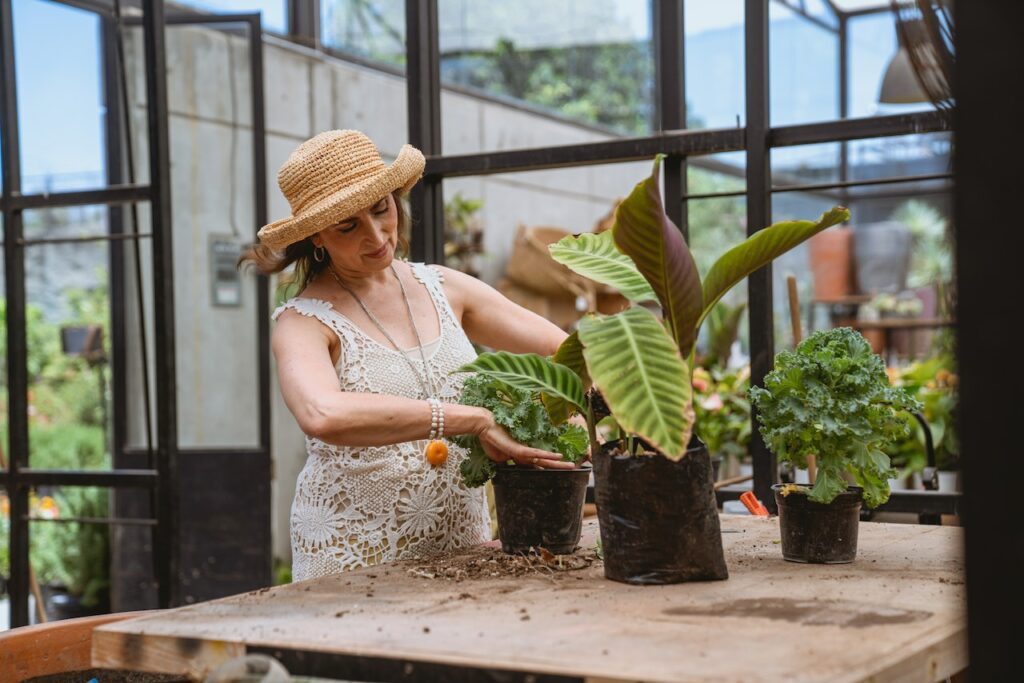Retirement changes a person. Flexible work schedules replace regular routines. This increased independence may be exciting but sometimes lonely, especially for single people.In this stage of life, companionship may promote quality of life, mental health, and physical health. Sharing your day, ideas, and interests with someone may give your retirement more meaning and enjoyment.
Pets are pals, too. Pets are special companions. They always love, comfort, and are there.
Caring for a pet may boost a person’s feeling of responsibility, physical exercise, and social engagement. Depending on the breed, pets may provide pleasure, security, and of course entertainment.
A dog’s exuberant welcome at the door, a cat’s calming purr, or a fish’s placid swimming in its tank may greatly enhance a senior’s retirement years.
Are you ready to discover your next best friend? If so, let’s get started!

Dogs
It’s easy to see why dogs have been called “man’s best friend” for thousands of years. Dogs provide unmatched devotion, affection, and companionship, making them ideal pets for retirees.
Breed variety distinguishes dogs as pets. Seniors may pick a dog that fits their lifestyle from hundreds of breeds. Some favor gentle breeds like Shih Tzus or Bichon Frises, while others prefer energetic types like Retrievers or Spaniels. This variety means there’s a breed for everyone, whether they want a low-maintenance dog, a calm one, or a buddy.
Numerous studies have shown that dogs assist older owners. According to “Gerontologist” research, dog ownership promotes physical exercise and social connection, which are vital to senior health. The park is a great place to exercise and connect with other dog owners.
Dogs can detect ailments and improve their owners’ health. Dogs’ senses, especially scent, may detect illnesses like cancer. This early discovery may improve treatment success by alerting doctors before medical testing can.
Finally, dogs’ intellect and trainability set them distinct. Seniors may benefit from dogs’ multitasking abilities. Service dogs may retrieve items, open doors, and even call for aid for seniors with mobility challenges. Non-service dogs may be taught to retrieve the newspaper and provide companionship, purpose, and usefulness.
Cats
Cats have charmed their way into human homes for millennia with their independence and calmness. They’re great retirement pets since they’re low-maintenance.
Cats are independent. Cats, unlike dogs, may be left alone for longer periods without suffering. This self-entertainment makes them excellent for elderly who desire a less hands-on pet experience or have physical restrictions. Cats are pleased with a nice location to slumber, a window to stare out of, and a few interactive toys to keep them cognitively busy. This lets pet owners experience company without continual involvement.
Studies show cats’ health advantages. In the Journal of Vascular and Interventional Neurology, cat ownership reduces stress and cardiovascular disease risk. The research reveals that touching a cat and listening to its purrs helps calm the brain, decreasing blood pressure and heart attack risk.
Cats’ purrs aren’t only calming; they’re therapeutic. Cat purrs may help repair bones and wounds, decrease swelling and inflammation, and relieve pain, according to research. Cat purr frequencies are in the therapeutic range for tissue regeneration.
Cats also self-groom, making them unique. Cats spend a lot of time grooming, which keeps them clean and cuts down on bathing. They’re ideal for elders who have trouble grooming pets.
Birds
Birds provide color and excitement to the house. They provide beauty, entertainment, and company, making them great retirement pets.
Birds’ lifespans vary widely by species, making them unusual pets. Budgies and canaries survive 5–10 years, whereas parrots can live 50 years or more. Seniors may pick a bird that matches their commitment duration, making them suitable to different retirement phases.
Bird ownership improves cognition. The “Journal of Veterinary Behavior” reported that bird ownership and care may improve cognitive function in elderly persons. Birds need cerebral stimulation via socialization, play, and environmental enrichment.
Parrots can imitate human speech, which is intriguing. The bird may learn to react to sentences, memorize names, and have rudimentary conversations with its owner. Bird ownership offers unique companionship and enjoyment for the elderly.
Birds may also be taught tricks. Parrots, cockatoos, and budgies can learn many tasks, from stepping up onto a finger to collecting things and traversing obstacle courses. Seniors like teaching birds because it stimulates both the bird and the owner.
Fish
Fish, with their delicate motions and vivid hues, are wonderful companions. They’re perfect for retirees searching for a quiet, low-maintenance companion.
Fish pets give visual pleasure without noise. Watching fish gracefully glide across an aquarium is pleasant. Their vivid colors and rhythmic motions create a calm atmosphere. Fish are great pets for elders who are noise sensitive.
Watching aquarium fish is soothing, according to many research. “Environment & Behavior” discovered that seeing fish in aquariums lowered blood pressure and pulse rate. These visual displays also reduced stress and improved mood, boosting mental health.
Aquariums may be relaxing and therapeutic. Cleaning the tank, changing the settings, and feeding the fish need care and attention, but they are less physically demanding than other pets. Seniors can handle this.
Fish have a huge diversity of sizes, shapes, and colors. Diversity permits aquarium customization. Seniors may create a joyful undersea habitat by choosing species that suit their tastes.
Hamsters
Hamsters are cute, popular pets. Seniors, particularly insomniacs and night owls, love them because of their nocturnal lifestyle and engaging personalities.
Hamsters are nocturnal. Unlike other pets, hamsters are active at night and sleep during the day. Seniors with sleeplessness or personal choice may find them suitable pets. These furry performers may give evening company.
Hamster care has been found to assist elders. The “Journal of Gerontology” found that feeding and cleaning such pets’ habitats may improve seniors’ hand-eye coordination and motor abilities, improving their physical health.
Hamsters’ behavior makes them attractive pets. Watching hamsters running on wheels, digging, and navigating their cages is fascinating. Their owners may enjoy their inquisitiveness and excitement in exploring.
Hamsters need little room for their housing. Hamster cages fit in tiny apartments and quiet corners, unlike bigger pets. They’re ideal for elderly who live in limited places or don’t want a pet that roams.
Guinea pigs
Guinea pigs, gentle and social, are great pets. Their long lifetime and ability to bond with owners make them wonderful companions for elders.
Guinea pigs can communicate with their owners via various noises. They can purr, squeak, and “popcorn” when they’re delighted. This communication deepens the attachment between guinea pigs and their owners, making it very rewarding for seniors.
Petting therapy helps elders, according to research. Petting an animal may relieve stress, lower blood pressure, and produce mood-enhancing chemicals, according to “The Gerontologist” study. With their soft coats and gentle nature, Guinea pigs are ideal for such encounters.
Guinea pigs are one of the nicest rodents and may heal. They’re friendly and pleasant. They provide elders with non-judgmental company and a feeling of being wanted, which may improve mental health.
Guinea pigs live long for little pets. Guinea pigs may survive 7-8 years, unlike many tiny pets. This gives the elderly time to connect with their pets.
Rabbits
Rabbits are loving pets with silky hair and cute jumping. Seniors searching for a peaceful, sociable companion would like them since they can be litter trained.
Rabbits are peaceful. Rabbits are peaceful and quiet, unlike other pets. This is ideal for a quiet family or elderly. For calm company, they’re ideal.
Rabbit ownership has been demonstrated to be therapeutic. The “Journal of Applied Animal Welfare Science” found that rabbit friendship may alleviate blood pressure, stress, and mental health. These perks may improve seniors’ lives.
Rabbits may be taught to utilize a litter box, making them unique in behavior and healing potential. This reduces housekeeping and makes rabbit care easier than pets who need walks or outside locations to discharge themselves. Seniors with movement limitations or prefer not to exercise may handle bunnies better.
Rabbits’ sociality is unusual. They like their owners and want their attention. Unlike other independent pets, rabbits adore being caressed and spending time with their owners. Socializing may provide elders a pleasant feeling of connection and camaraderie.
Turtles
Turtles calm a house with their hard shells and quiet pace. Seniors looking for a pet with a distinctive charm and low interaction demands may like them because to their peaceful temperament and long longevity.
Turtles are calm. They investigate slowly. This tranquility may spread, calming the house. Turtles are ideal pets for elders who want peace and quiet.
Pet turtles may reduce stress, according to research. The “American Journal of Alzheimer’s Disease & Other Dementias” found that seniors who engaged with pets, especially turtles, had lower stress and a higher feeling of well-being. Turtles’ leisurely, regular movement and care help calm daily life.
Turtles are low-maintenance and therapeutic, making them great for the elderly. Turtles are content to wander their tank or room, returning to their owner for food and attention. Seniors might find friendship and purpose without much physical activity.
Turtles live long. Turtles may live 20–100 years, making them a long-term companion for seniors. Longevity permits a profound relationship to form, giving elders a devoted, consistent presence.
Reptiles
With their many species, reptiles provide intriguing, low-maintenance pets for seniors. Their peaceful temperament, long lifespans, and engaging nature may give intrigue and friendship to a household.
Unlike many conventional pets, reptiles are noted for their peaceful disposition and little maintenance. Reptiles like lizards and snakes need nourishment, a clean environment, and occasional handling, unlike dogs and cats. This makes them less physically demanding, which may appeal to elderly with restricted mobility or who want less energetic pets.
Studies show that pet ownership improves mental wellness. The “Journal of Gerontology” concluded that pet ownership improves happiness, reduces loneliness, and increases responsibility. Caring for reptiles gives the elderly a passion and meaningful connection that improves their mental health.
Reptiles like turtles and lizards have extended lifespans and healing abilities. Turtles may live for decades, giving long-term companionship. This longevity helps elders to form a lasting attachment with their pets, providing comfort and company.
Reptiles offer character to a house. Snakes, geckos, and other species have fascinating behaviour. They may be conversation openers and a fun, mind-stimulating hobby.

Ferrets
Ferrets’ nimble limbs and curious gaze add liveliness to a household. Seniors seeking for a pet may find these inquisitive little critters entertaining, companionable, and controllable.
Ferrets play. Ferrets are active and curious. Their antics may keep their owners entertained for hours. Ferrets’ continual movement and playfulness might appeal to elderly.
Several research has shown the advantages of playing with pets. The “Journal of Gerontology: Medical Sciences” reported that pet ownership, especially of sociable and lively creatures like ferrets, may considerably boost mood and decrease stress in seniors. Ferrets’ playfulness may stimulate their owners’ thoughts and improve their happiness and health.
Ferrets’ curiosity and playfulness delight and heal. Their joyous “war dance” and the tendency of concealing little things in play are hilarious. This curiosity and fun may be therapeutic and cerebral stimulation for elders.
Ferrets may also be litter-box trained. They can be trained to use a litter box, making them easier to care for, even for novice pet owners.
If you made it this far, congrats! I hope this post helped you choose the perfect pet for retirement. If you liked this article, I highly recommend that you check out my in-depth guide on Summer Activities: 7 Best Things Seniors Can Do in the US!














